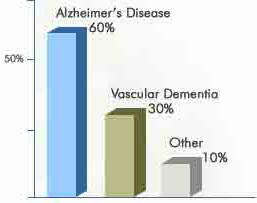|
Anti-Aging Developments - September 2011age-well.org > Anti-aging Discoveries > Anti-aging Developments - September 2011 Eyelids Marks Might Indicate Heart Attack RiskThe BBC World Service reports on trials in Denmark which appear to link yellow markings on the eyelids or xantheslasmata to an increased risk of heart attack and other illnesses. According to the report a study which was published on the British Medical Journal website, patients with Xanthelasmata were at a 48% higher risk of a heart attack than those who did not have the markings. They were also 39% more likely to develop heart disease and 14% more likely to die. Cardiologists explain that Xanthelasmata, which are mostly made up of cholesterol, could be a sign of other fatty build-ups within the body. A build up of fatty material in the walls of arteries - known as atherosclerosis - leads to stroke and heart attack. The research team at the Herlev Hospital in Denmark started following 12,745 people in the 1970s.Of these 1,872 had a heart attack, 3,699 developed heart disease and 8,507 died in the intervening years. Researchers believe that patients with Xanthelasmata may be more likely to deposit cholesterol around the body. The trials studied subjects from both sexes and several different age groups and results indicate that, in all cases there is a one in five chance of patients with Xanthelasmata developing heart disease in the next decade. The authors concluded that such patients were "generally considered to be at high risk" and should have "lifestyle changes and treatment to reduce [bad] cholesterol." However they warned that: "Today, most people with xanthelasmata are seen by dermatologists, when they want their xanthelasmata removed for cosmetic reasons."Some of these people may not have been managed according to their increased risk of cardiovascular disease." Links Between Obesity, Diabetes & Dementia
A recent scientific study shows that people over 60 who are suffering from Type 2 diabetes are over twice as likely to develop Alzheimer’s and other forms of Dementia than people with normal blood sugar levels. The study was carried out by researchers from the Kyushu University in Fukuoka, Japan. Dr Yutaka Kiyohara, who led the team, said the results emphasized the need to consider diabetes as a potential risk factor for dementia.'Diabetes is a common disorder, and the number of people with it has been growing in recent years all over the world. Controlling diabetes is now more important than ever' he stressed. During the trials 1,017 people over 60 were tested for diabetes and then monitored for an average of 11 years before being tested for dementia. Of the 150 participants with diabetes 20 developed dementia, compared to 51 of the 559 people without the disease who developed it. The study shows that people with diabetes are twice as likely to develop vascular dementia that occurs when blood vessels are damaged and eventually deprive the brain of oxygen. The researchers took into account factors such as high blood pressure, high cholesterol and smoking. The risk of dementia was also higher in those participants who had pre-diabetes, or an impaired glucose tolerance. The risk of developing dementia significantly increased when blood sugar was still high two hours after a meal. The study will be published in the medical journal Neurology today. Diabetes can be triggered by obesity so it makes good sense to keep your weight under control as a means to warding off both diabetes and dementia as you age. 7 Tips To Beat Alzheimer'sAccording to the RealAge newsletter Age-well.org received this week, over half the cases of Alzheimer’s may be prevented by changes in lifestyle. More research is needed to definitively prove the link between the seven risk factors mentioned below and Alzheimer’s but in the meantime, it can only be good for you to implement these changes as they have other health benefits. But remember forgetting your keys is not the onset of Alzheimer’s but if you no longer know what a key is for, then you are in trouble. Research suggests that there are seven lifestyle changes which could offer protection from the memory-stealing disease. 1. Be More Active 2. Walk Outside 3. Quit Smoking 4.Eat More Watermelon 5. Get Enough Sleep 6. Learn Something New 7. Watch Your Weight Tips From Dr. Marilyn GlenvilleBones of Contention Do you suffer from Sore Gums? An Apple a Day.... Nature's Sunscreen age-well.org > Anti-aging Discoveries > Anti-aging Developments - September 2011 Top of Anti-aging-developments-September 2011 |
Translate this Site
Search This Site
Loading
Subscribe to E-Zine
Support this Site
|
Holiday SpecialsFor Holiday Specials at Amazon, Click Here
|
| |||||





